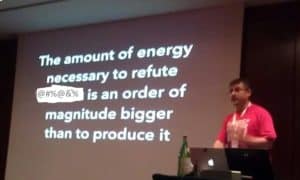
The Court of Appeals by characterizing the agreement as a stipulation held it was admissible. The Court of Appeals reasoned while “Admissions by agents or attorneys are not admissible in criminal cases in the sense in which they are admissible in civil cases. They should not be treated as evidence against the accused unless shown to have been authorized by him,” Dryer v. State, 205 Ga. App. 671, 672 (1), n. 1 (423 SE2d 297) (1992), the agreement to rescind the administrative license suspension was more like a stipulation of evidence because it was made in open court before the Defendant and the defendant did not repudiate the agreement even though the Defendant did not sign the agreement citing Muldrow v. State, 322 Ga. App. 190, 195 (3) (744 SE2d 413) (2013). Although the agreement was signed by Officer Ott, the attorney for the Defendant at the license hearing who was a different attorney from the one at trial, and was signed by the Administrative law judge, there is no evidence that Defendant was even present at the hearing, that the agreement was made in open court or on the record, what relevant facts were stipulated or that the agreement contained any relevant facts to the issues in the DUI trial. There was merely an unenforceable agreement to agree to plead guilty at a later court proceeding which was not relevant to any material issue at the trial. At best this was some form of admission and not a stipulation to any past conduct of the Defendant but only future conduct after the crime had been committed which is not evidence.
The Court of Appeals found that the license hearing agreement was relevant under Georgia’s Rule of Evidence 401 and not more prejudicial than it was probative under Rule 403. The Court of Appeals pointed out in footnotes that the license hearing agreement was not admissible as an offer to compromise under O.C.G.A. 24-4-408 as this code section does not apply to a criminal proceeding. However, an administrative license hearing is not a criminal proceeding but a civil proceeding. Further, the Court of Appeals noted in footnotes that the license hearing agreement was not hearsay if the Defendant did not testify as it is an exception to the hearsay rule to allow statements that can bring criminal or civil liability under OCGA 24-8-804 as a statement against interest. However, this agreement was not made by Defendant but by Defendant’s attorney and would be hearsay not subject to any exception unless the Attorney was available to testify.
-Author: George Creal

